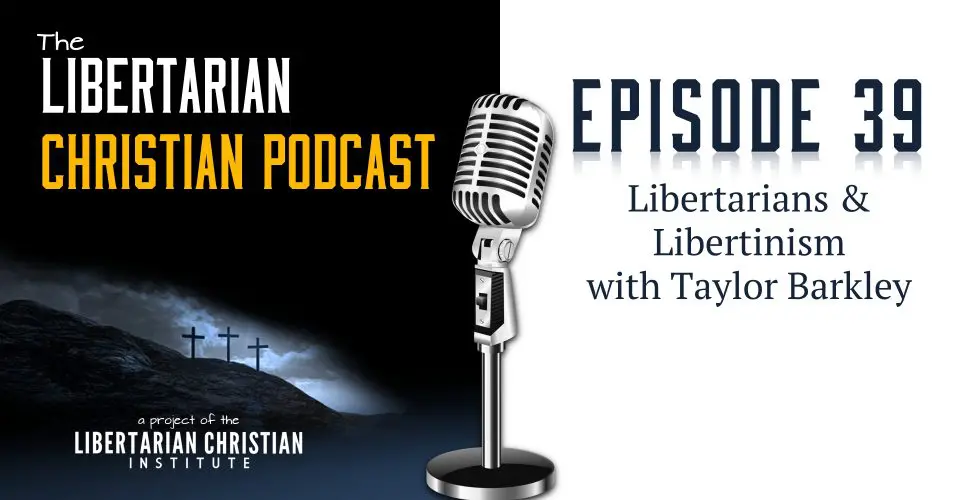

The popular perception of libertarianism is often skewed. While those on the left tend to think of libertarians as greedy and self-absorbed with no concern for the poor, those on the right — and particularly the Christian right — often conflate libertarianism with libertinism. What’s worse, many libertarians have contributed to this error by mixing libertarianism with other elements of their ethics, giving the inaccurate impression that libertarians must be hedonists, abuse narcotics, or live licentiously, or that at the very least they must not object to someone else’s questionable behavior.
As we continue our interview series with the authors of Called to Freedom, Taylor Barkley joins us to talk about the differences between libertarianism and libertinism. What are the different shades of libertarianism? How do the distinctions between ‘thin libertarianism’ and ‘thick libertarianism’ come into play? Why do some libertarians mix libertinism into their libertarianism? How should we explain libertarianism to those on both the left and the right?
Called to Freedom book
Jeff Wright: “Conservative and Libertarian Christians: Worldview Allies or Enemies?”
Jeff Wright: “So You’d Be A Libertarian If It Weren’t For Abortion and Gay Marriage?”
Laurence Vance: “Conservatism versus Libertarianism”
Lew Rockwell: “The Future of Libertarianism”
Jeff Deist: “Self-Determination, not Universalism, is the Goal”
Stephan Kinsella: “The Limits of Libertarianism?: A Dissenting View”
Jeffrey Tucker: “Against Libertarian Brutalism”
Charles Johnson: “Libertarianism Through Thick and Thin”
Sheldon Richman: “In Praise of ‘Thick’ Libertarianism”
The Christians for Liberty Network is a project of the Libertarian Christian Institute consisting of shows and hosts offering various perspectives on the intersection of Christianity and libertarianism. Views expressed by hosts and guests do not necessarily reflect the view of the organization, its staff, board members, donors, or any other affiliates (including other hosts or guests on the network). Guest appearances or interviews of any incumbents, officials, or candidates for any political, party, or government office should not be construed as endorsements. The Libertarian Christian Institute is a 501(c)(3) non-profit organization and does not endorse any political party or candidate for any political, government, or party office. For information about the Libertarian Christian Institute’s core values, please visit this page.
), //libertarianchristians.com/wp-content/plugins/smartquizbuilder/includes/images/template6-latest.jpeg))

), https://libertarianchristians.com/wp-content/plugins/smartquizbuilder/includes/images/template6-latest.jpeg))








































), https://libertarianchristians.com/wp-content/plugins/smartquizbuilder/includes/images/template6-latest.jpeg))
), https://libertarianchristians.com/wp-content/plugins/smartquizbuilder/includes/images/template6-latest.jpeg))
), https://libertarianchristians.com/wp-content/plugins/smartquizbuilder/includes/images/template6-latest.jpeg))





Sign up and receive updates any day we publish a new article or podcast episode!